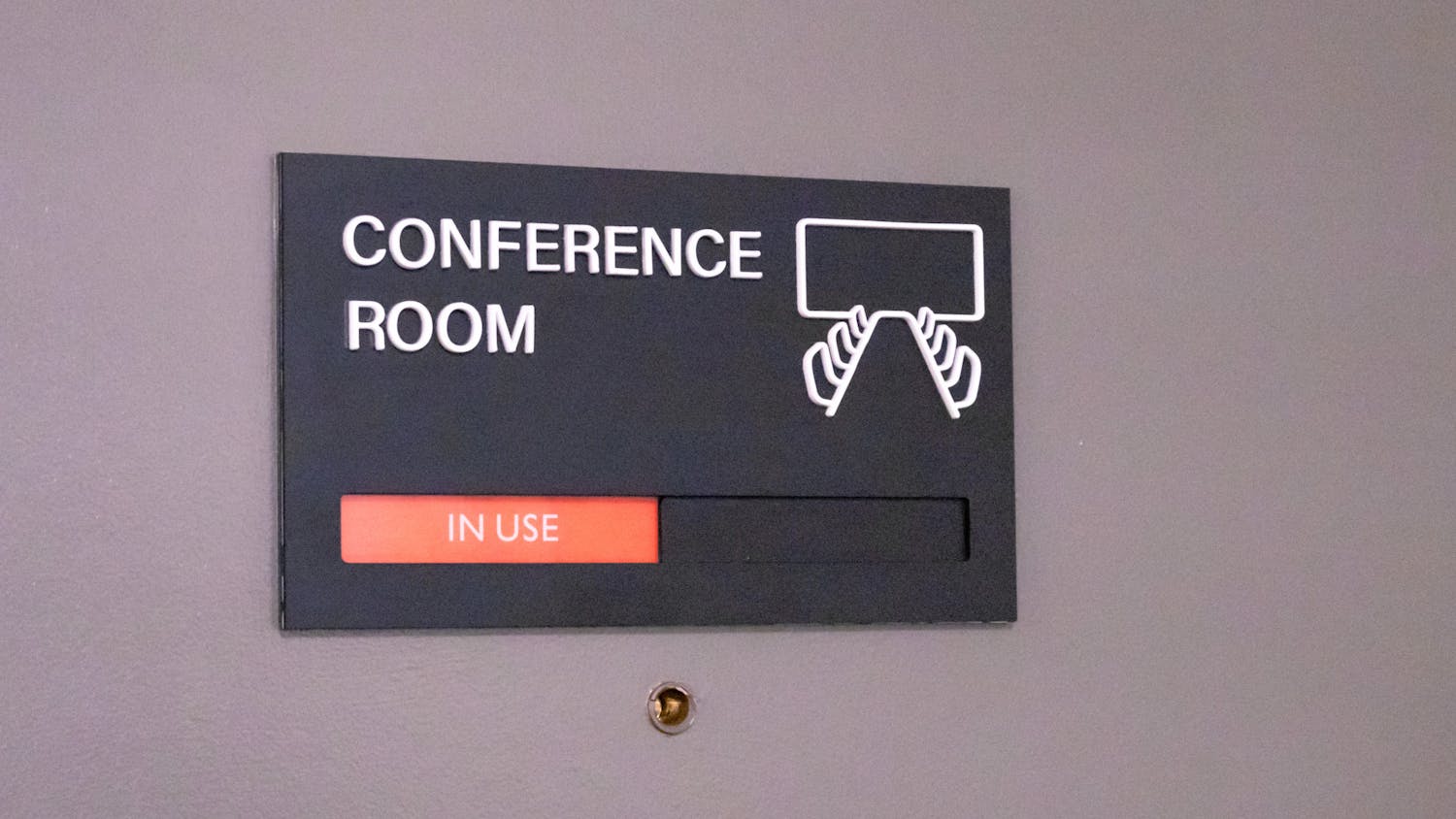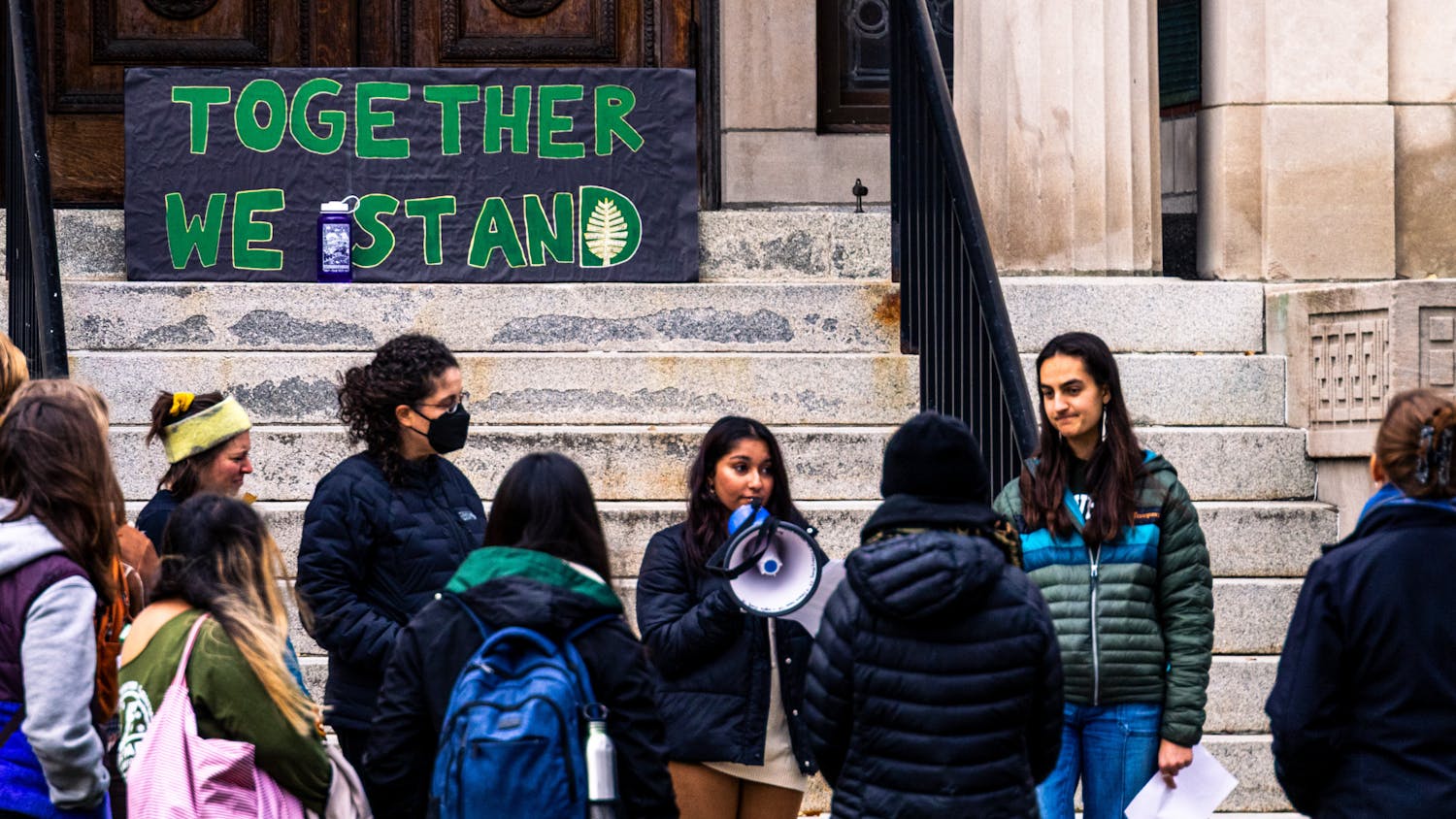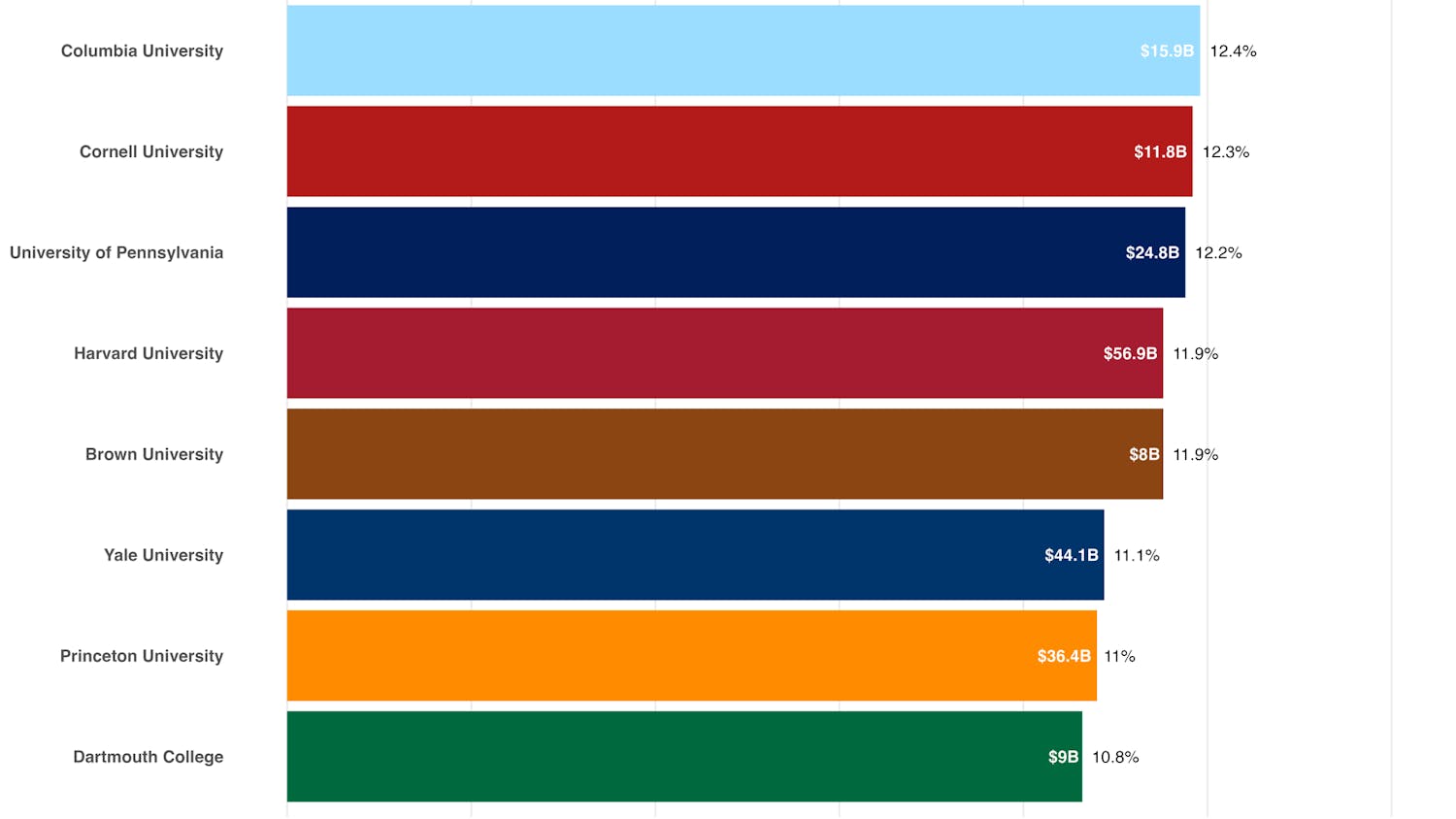For several months now, Lee Bronsnick '99 and many other seniors have faced the intimidating rows of suits filling the Hanover Inn, searching among them for a future employer.
Company representatives have come to recruit the students into the corporate world.
Bronsnick said he is particularly interested in finance and the securities and stock industries. He held an internship at the New York Stock Exchange following his junior year, assisting a specialist at the Susquehanna Investment Group.
"It's like a game, a sport, where you're on your own and you can do your best," Bronsnick said. Although the job involved working with people, he said the competition made interactions less personal.
Bronsnick said he interacted with professional traders while working on the floor. He said the experience gave him a more realistic perspective on the professionals:
"I read the Wall Street Journal now, and they're quoted, and I'm like 'people are listening to this guy?'"
Bronsnick previously worked on the Mercantile Exchange in a similar capacity.
In addition to seeking out internships, Bronsnick initiated his career search early through Career Services.
Between his freshman and junior years, he gathered information about companies. As a result, he said he was familiar with 20 to 30 of the businesses visiting campus this year.
Bronsnick attended about seven to nine information sessions held at the Hanover Inn this fall. The sessions occur for approximately six weeks during the evenings, and seniors are invited to meet company representatives, including Dartmouth alumni.
Bronsnick said the alumni, particularly recent graduates, were "really accessible" and made the sessions more informative.
He said he found the sessions held by consulting firms to be more relaxed than those run by banks and said "they really sell out of the social side of the company." He said the stress on people skills at the sessions helped shift his interest to consulting firms.
Bronsnick said most of the banks expect a transcript with a grade point average and a cover letter in addition to a resume of activities and work.
By preparing his resume early this fall, Bronsnick was able to allow many people to proofread it before he submitted it to the companies.
Bronsnick also described in his resume his work on the economics exchange program with Oxford College in London. Students in the program worked independently rather than attending lectures, and they wrote one paper a week.
He said he felt the program gave him a chance to write more prolifically and "just get it out" on paper more than he does in his Dartmouth classes.
Bronsnick, an economics major and math minor, said he chose his major because he particularly liked his statistics course and Economics 26: Introduction to the Financial Market.
He said the economics major "doesn't apply the way people think it does" and people with other majors with job or internship experience are as likely to find jobs.
Although he hopes to find a job through the recruiting process, Bronsnick said he does not have his mind set on any one firm. He plans to apply to financial institutions including Schroder and Co., Inc. and Paine Webber, Inc. and consulting firms like Mercer Management Consulting.
Bronsnick said he works with several other members of the Classes of 1999 and 2000 as part of the student-run investment group Granite of New Hampshire, talking with economics professors and using Tuck Business School resources.
He is also an active member of Sigma Phi Epsilon fraternity and said he thinks some connections to the fraternity's recent graduates could help him in his career search. Bronsnick, a New Jersey native, said he likes the fact that most of the companies are located in New York City.



